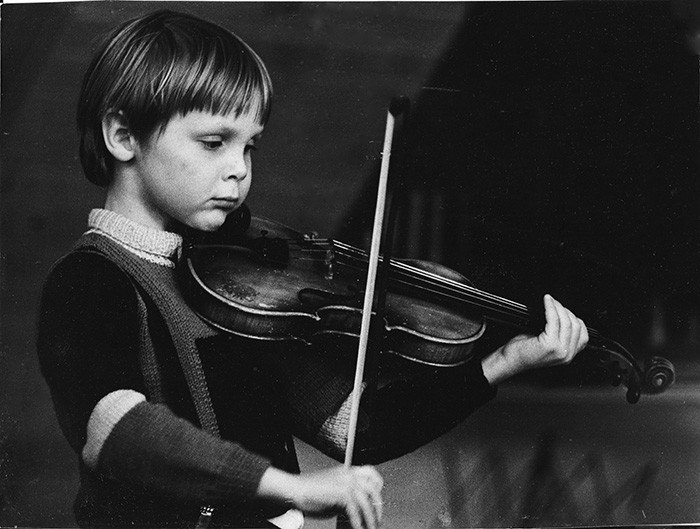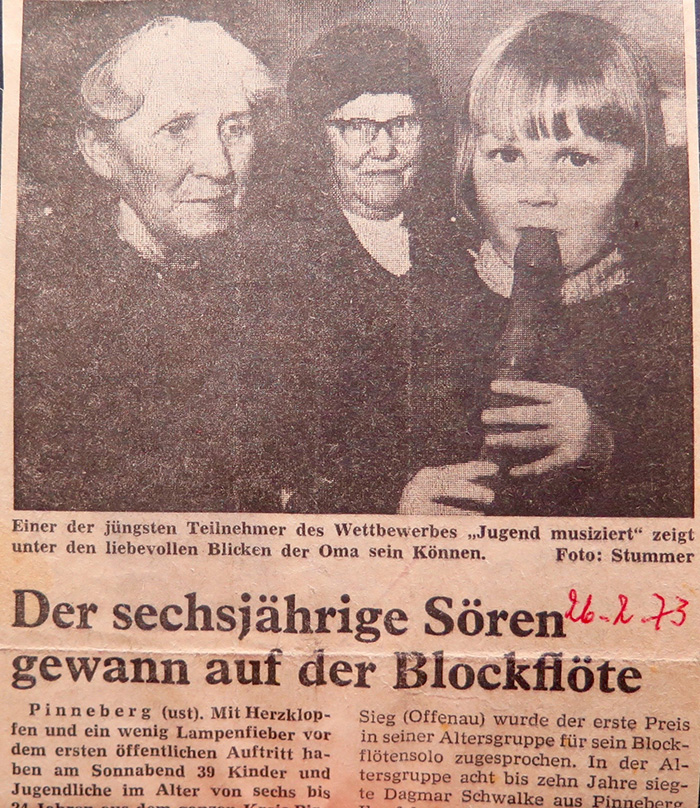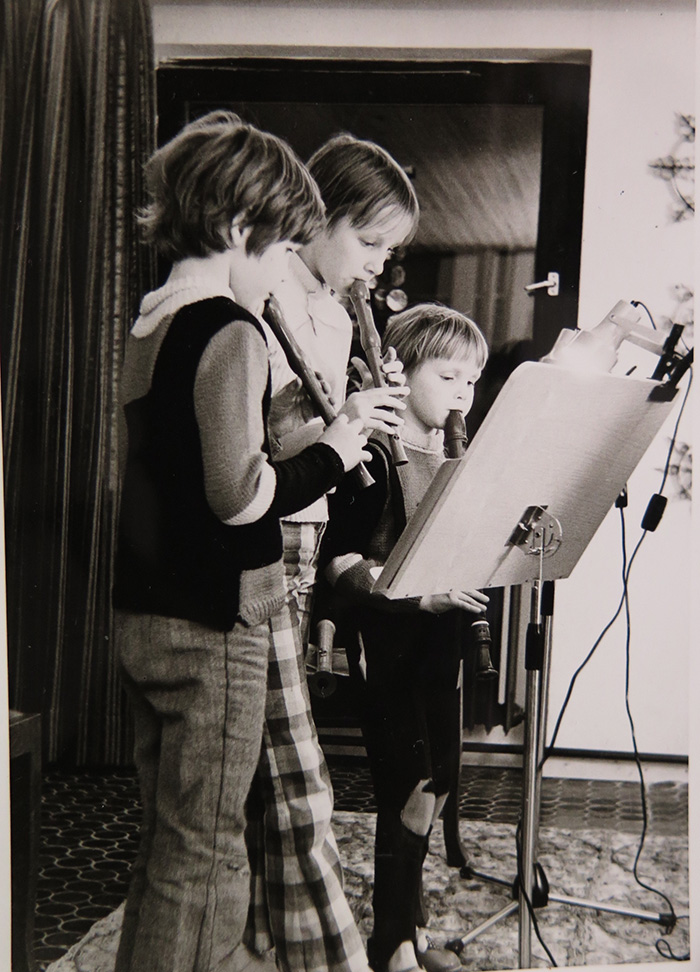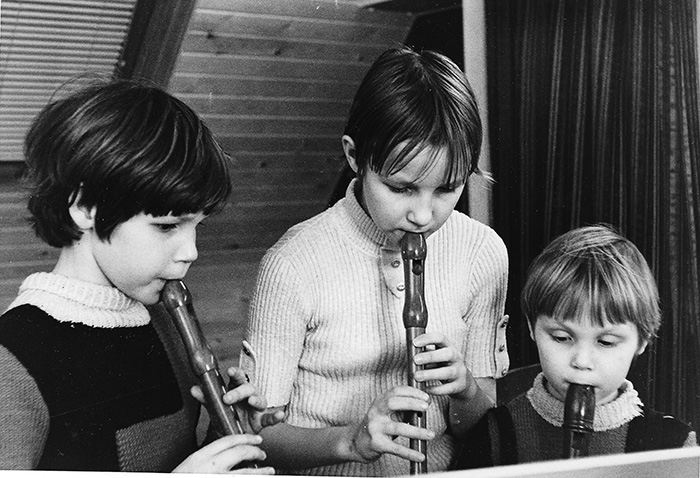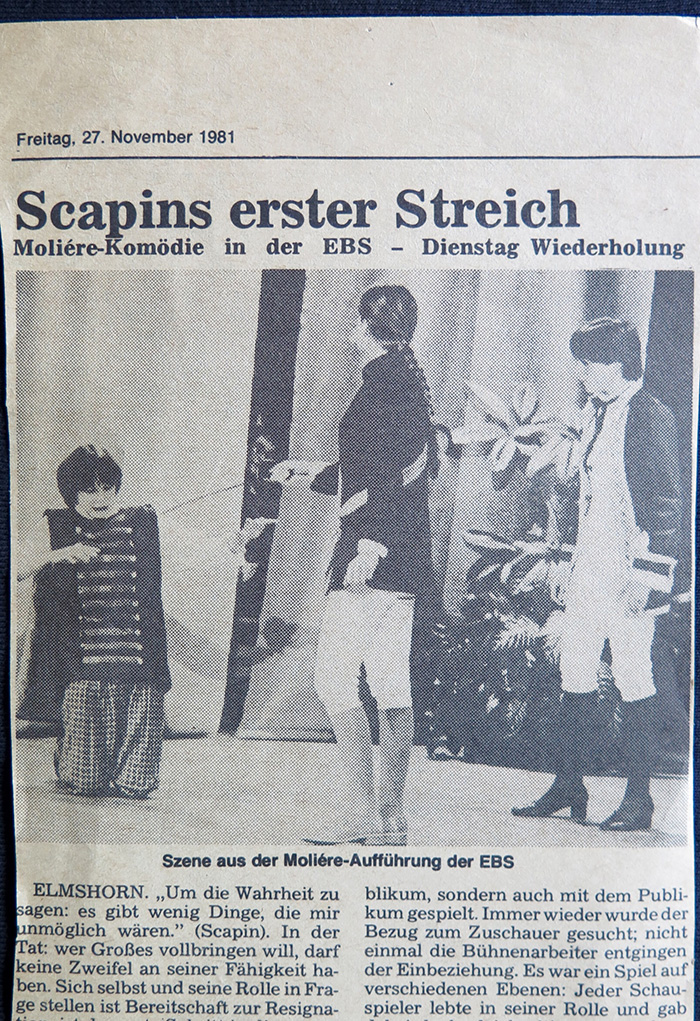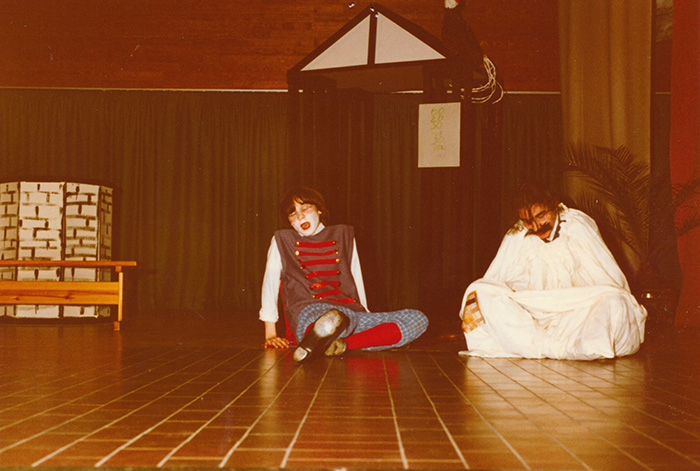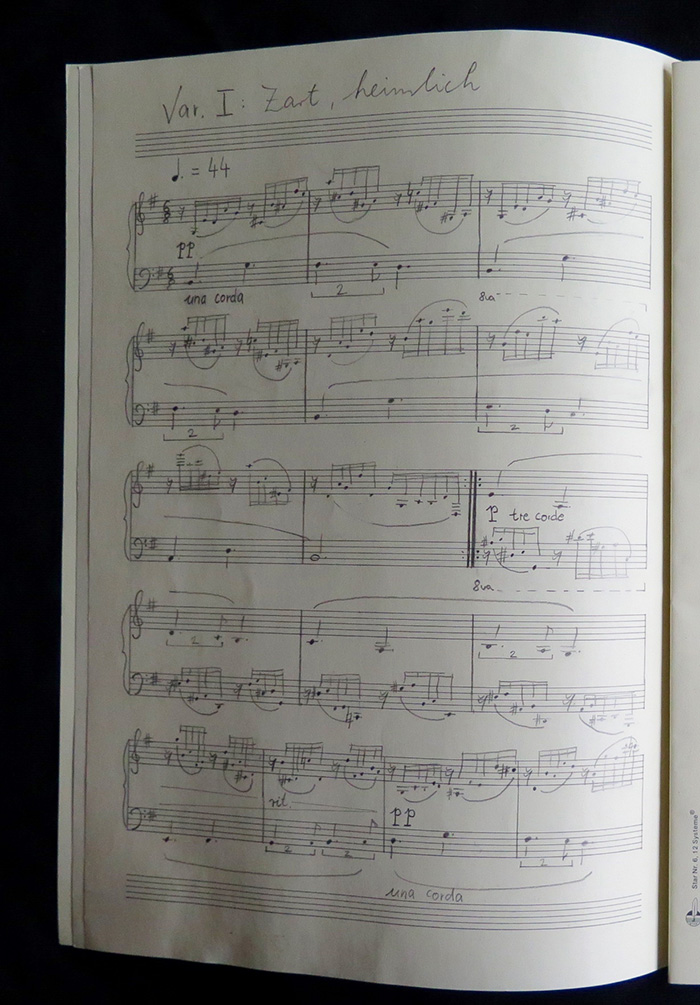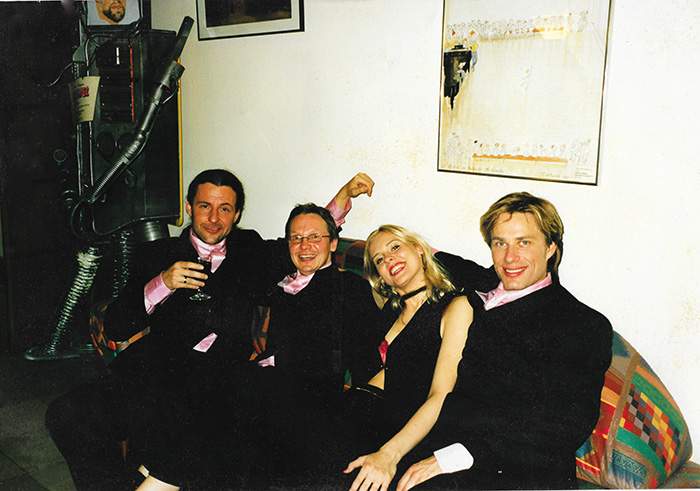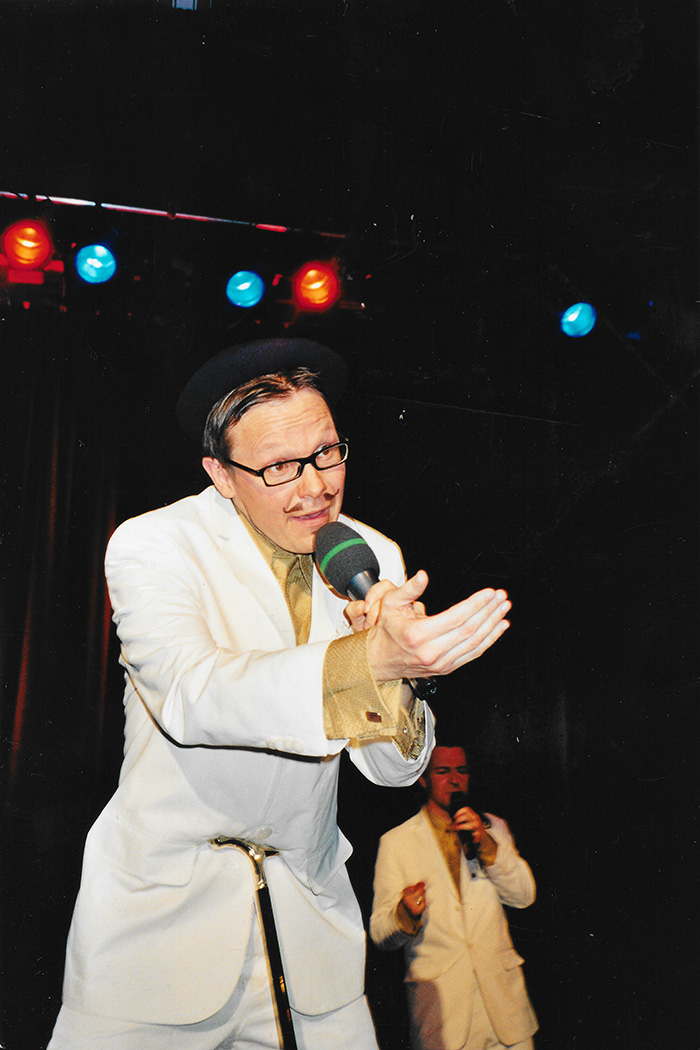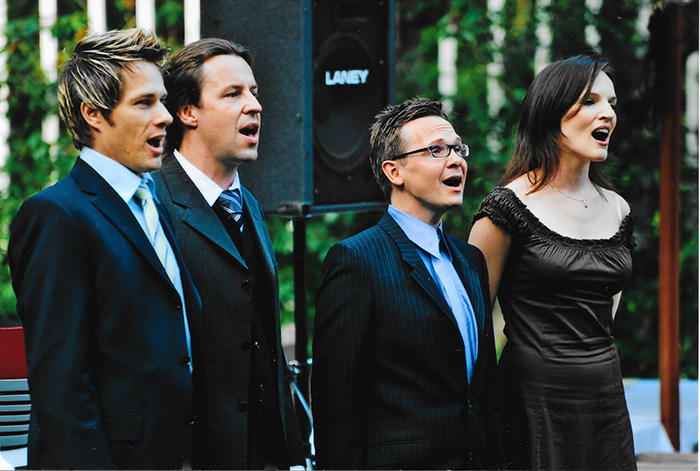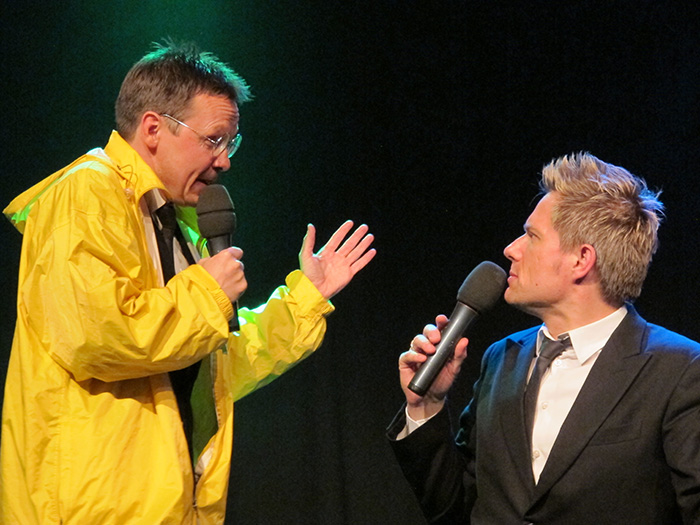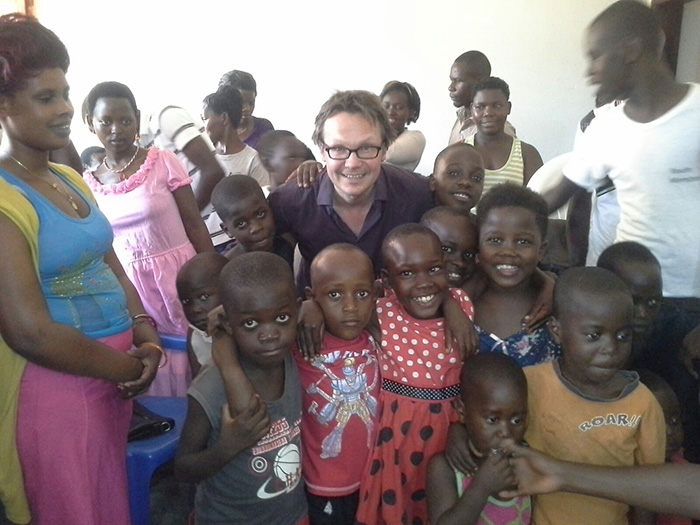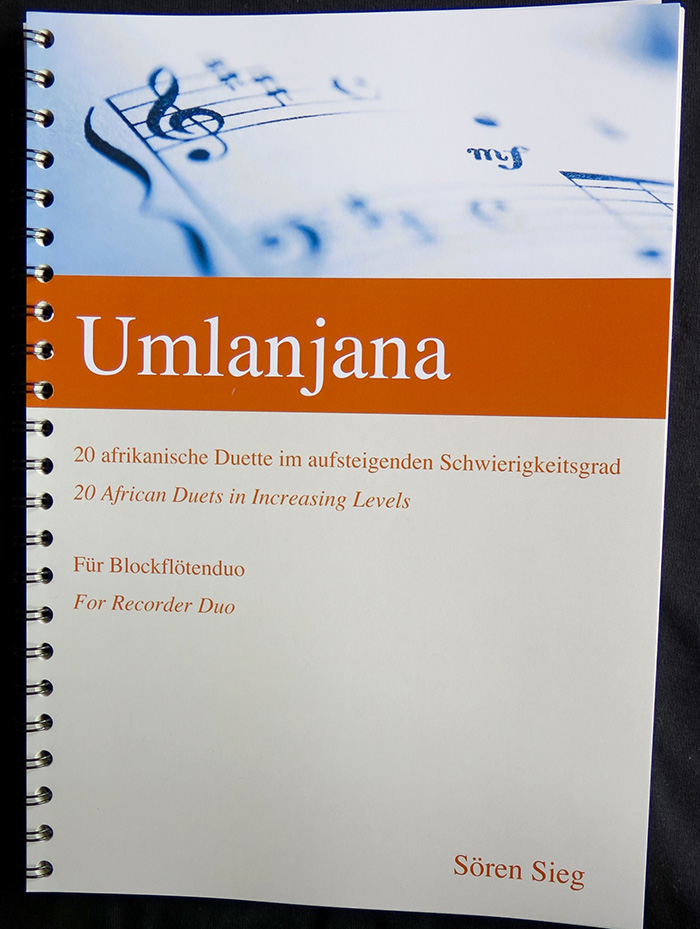Biography
My Life in 55 Photographs
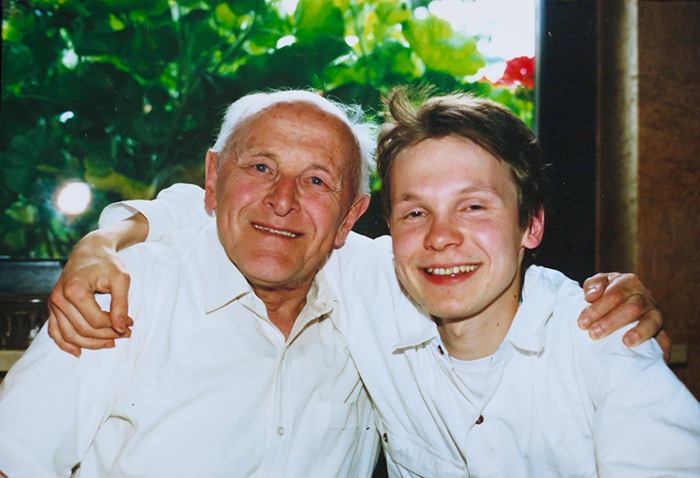
1978 – Until 1978, my grandfather, Heinrich Paff, taught me to play the violin. He was a passionate violin player and teacher and directed his own chamber orchestra for many decades. On his 90th birthday, he was still playing in a string quartet with his friends and he told me that his grandfather was conducting the men's choir in Hameln. I will never forget accompanying him on the piano as he sang a song from Schumann's Dichterliebe with a voice somewhat shaky, but the mind still strong.
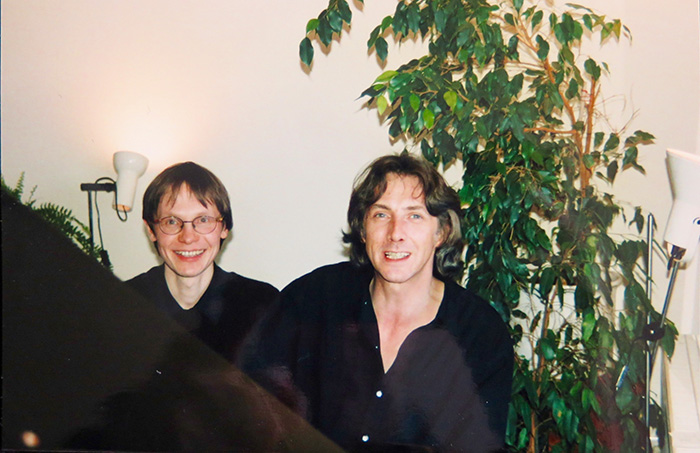
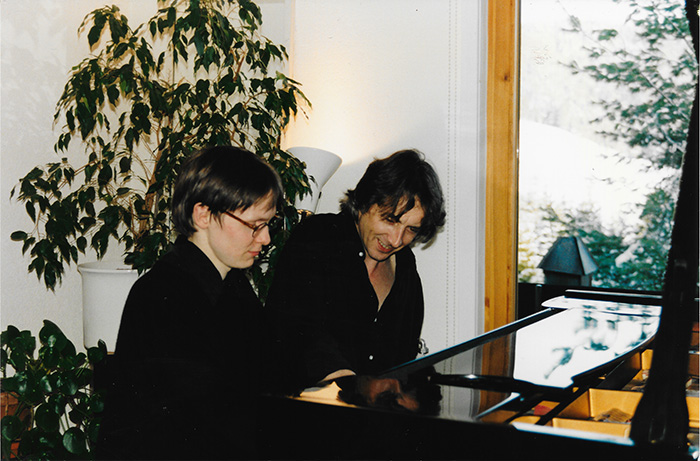
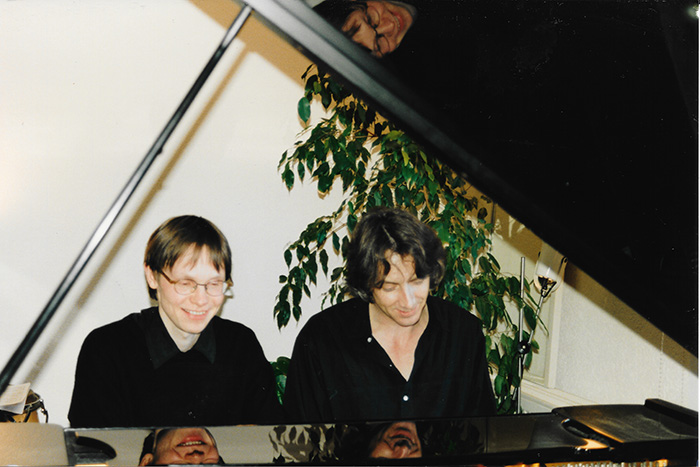
1984 – At the Workshop for Jazz, Rock and New Music I get to know the Dutch composer and pianist Ronald Poelman. Throughout 1985/86 we give concerts as a piano-sax-duo with him at the piano and me on the saxophone. We love Stravinsky, Jan Garbarek and Keith Jarrett, and play our own works and improvising on suggestions from the audience. In this photo from 1996, we prepare the concert The Art of Fugue for piano at four hands. In 2017, his piano quartet Tastissimo will play two premieres of my pieces: The Circle for eight hands at two pianos and Siku siyo mbali (The day is not far) for eight hands at one piano. Without his steady encouragement, I probably would not have become a composer.
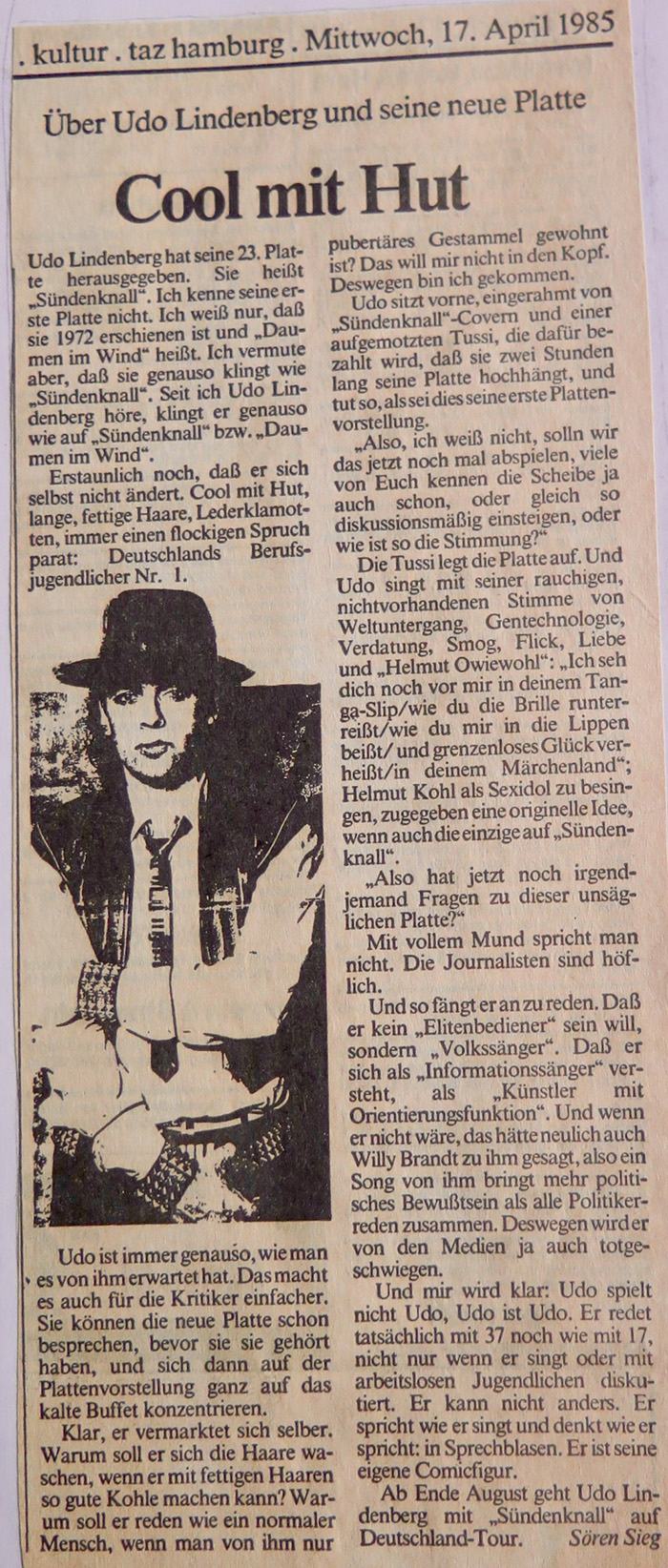
1985 – I make an internship at the Taz and then become a freelance author for them. In the NDR-Talkshow the female host reads my slating review of his latest album to the puzzled german Rockstar Udo Lindenberg ("the Taz lately wrote about you: ..."). However, the most letters from readers I ever received came after my piece, “How I Became a Feminist”, where I describe how I am constantly mistaken for a woman after moving to Hamburg. This mix-up haunts me for the next 20 years.
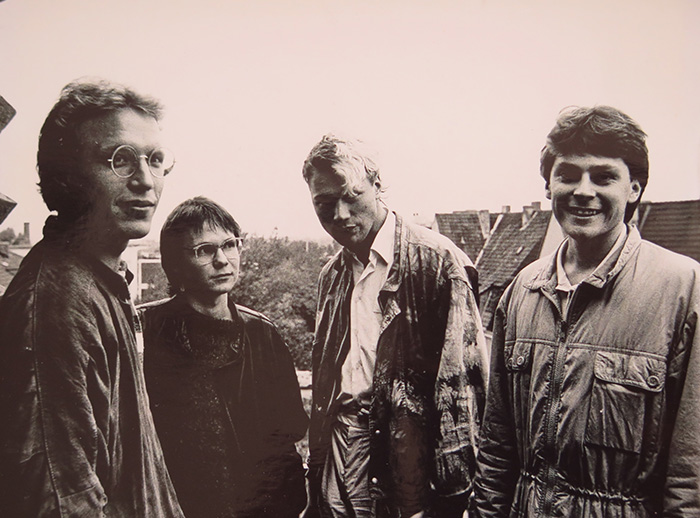
1986 – Heiko Streck, Frank Deutsch, Dirk Wildgruber and I quit the "civil service" on the first of October to protest against conscription. The following "Conscription-Funeral" ends up at a charity concert in the Fabrik. The line-up includes Abi Wallenstein, Hans Scheibner and the famous Punk band Die Goldenen Zitronen. I never came as close to Punk as then. Later the German filmmaker Michael Enger shoots the documentary The Unconvenient Path about our group The Deserters.
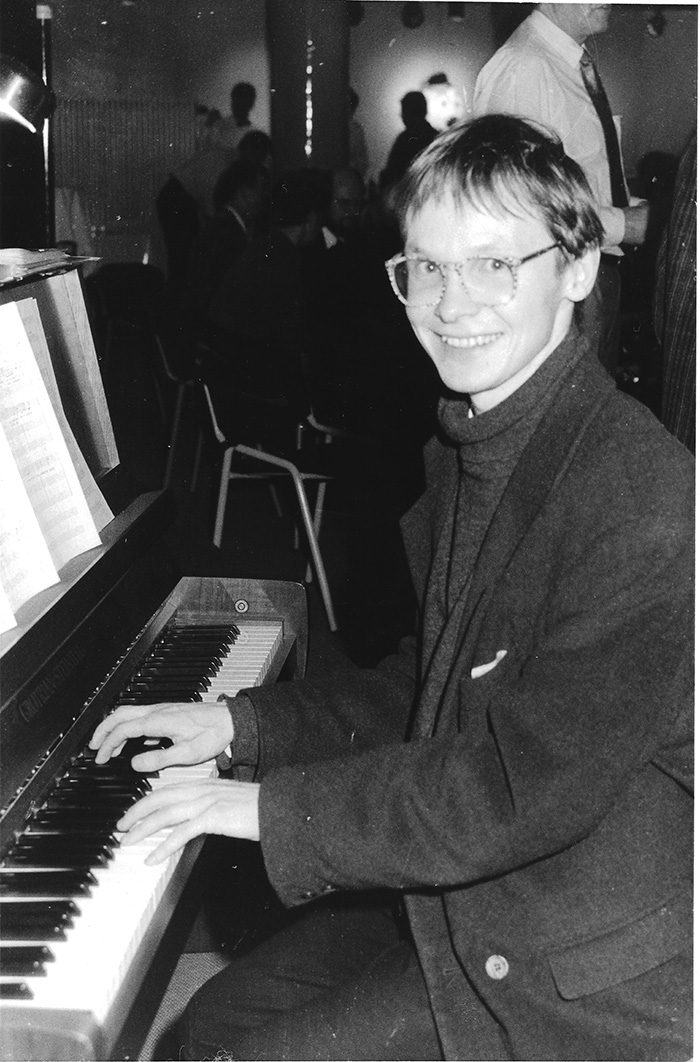
1987 – While studying Politics and Sociology, I start working as a piano accompanier in the Kleinkunstszene of Hamburg. I accompany Monty Arnold, Annette Mayer, Lilli Walzer, Nana Gualdi, Joe Luga, Anneliese Braasch, Gisela Krebs, Renate Howe, Gerd Samariter, Circe, Henry Schönewald and Ilse Werner; soon I know all the chansons by Holländer, Brecht, Kreisler and Tucholsky by heart.
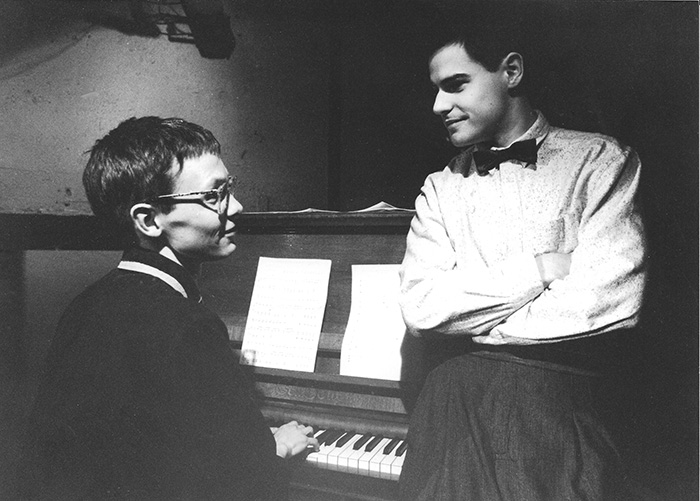
1989 – With Monty Arnold in the Mainzer Unterhaus. I accompany him on many tours through Germany and play with him on the 30th birthday of famous German cartoonist Ralf König in Cologne, the only straight guy among 300 gays. Our comedian and artistic highlight is the live synchronization of four short movies from Stan Laurel and Oliver Hardy in the tradition of the German TV-Series Väter der Klamotte: Monty as narrator, speaker of all characters and sound maker; me on the piano. We play the show at all big cinemas in Hamburg and even at one open air event at the mayor hall square. It rains with a blowing gale, but we still play - for around ten spectators wrapped in blankets and raincoats.
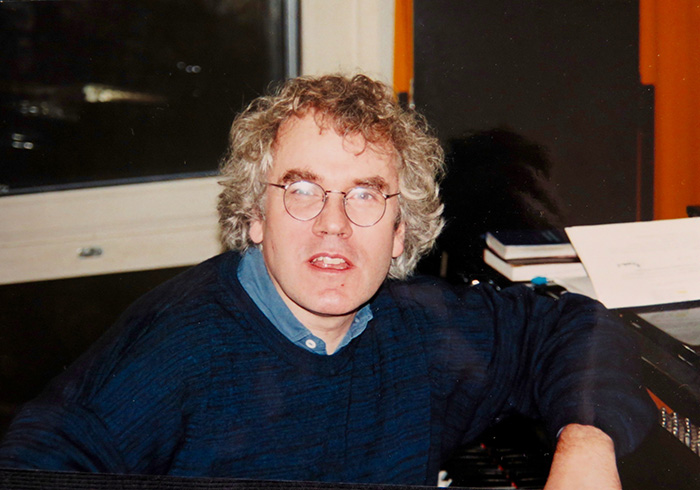
1990 – After a concert of the Kronos Quartet in the St. Johns Church in Harvestehude I decide to quit the social sciences and apply for the Hamburg Music University. I scrape through the entrance exam, because the singing professors, Kirchner and Rauschnabel, think my voice is "too high". I wish to thank the fantastic professors that taught me from 1991 to 1996: Karl-Heinz Girgensohn (piano), Wolfgang-Andreas Schultz (composition), Thomas Arp (drums and percussion), Anne Ubbelohde (choir conducting), Hans-Georg Lotz (composition theory), Dieter Einfeldt (music history) and Wilfried Jochens (singing), who is himself a very high tenor (on the picture). Later, I will write my first novel about my time at the music university, Das Milchstraßenpalais, which was never published. Thank goodness!
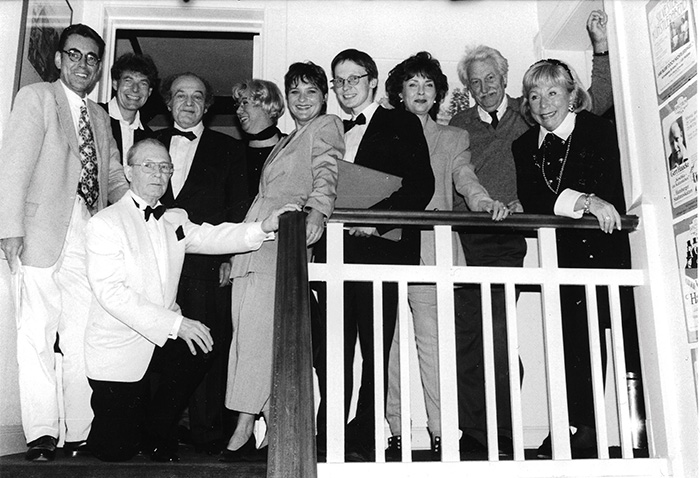
1991 – The Hamburg Comedy People in the beginning of the 90s (from left to right): Friedhelm Mönter (radio host), Eddy Winkelmann (singer-songwriter), Gabriel Laub (satirical author), Anneliese Braasch (Lower German diseuse), Annette Mayer, me, Erika Lill (Director of the Comedy Club The Spectrum), Günter Harte (decade-long-newspaper-columnist), Nana Gualdi (pop star of the Fifties, biggest hit: Young People need love), and down at the stairs the chansonnier Joe Luga, whom I appreciated very much. When Gabriel Laub dies 1998, I win the Gabriel-Laub-Price of the Hamburg Authors Association with the satire The Jury; unfortunately the heirs retrospectively forbid the use of Laub's name.
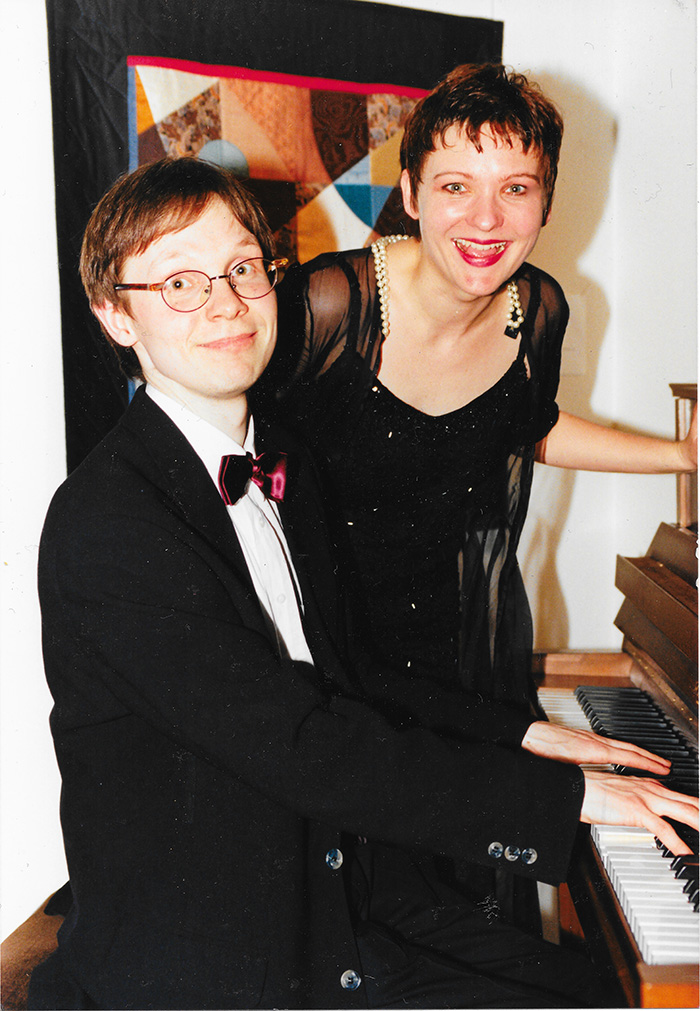
1992 – Annette Mayer wins the Boy-Gobert- and the Ralf-Benatzky-Prize, in the following years we tour through Germany with the shows I can't help it I'm so pretty! and When the circus was burning. 1997 I write the show for her Or what are you expecting of a Chansonette? I will never forget the facial expression of famous German TV host Götz Alsmann, when Annette tells him, that she wants me, instead of him, to accompany her on the piano at his show.
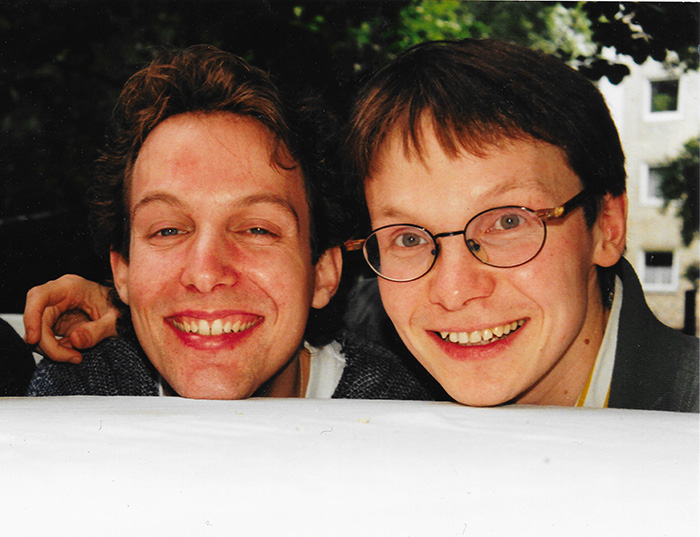
1993 – With my fellow student Michael Staudacher, I play the premiere of my piece Die Rückkehr der Heiligen Drei Könige nach Sevilla (The return of the Three Magi to Sevilla) for piano duet, my only consistent bitonal piece in the tradition of Darius Milhaud. One year later, Michael emigrated to South Korea to teach music at the German School.
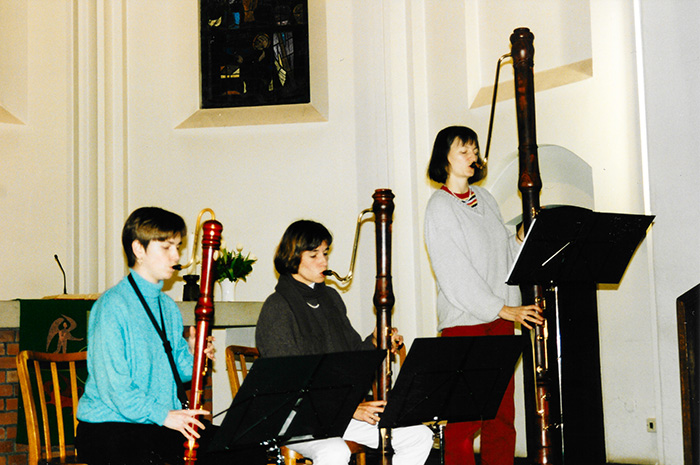
1994 – For the Flutes en bloc (Anette Bahe, Ebba-Maria Künning-Zeijl and Corinna Fröhlich) I wrote my first African piece ever, the African Song after a motif of the song Toomus Meremereh nor Good of S.E. Rogers from Sierra Leone. From there I started my first African Suite Djaboué, which was published by Tonger in Cologne one year later.
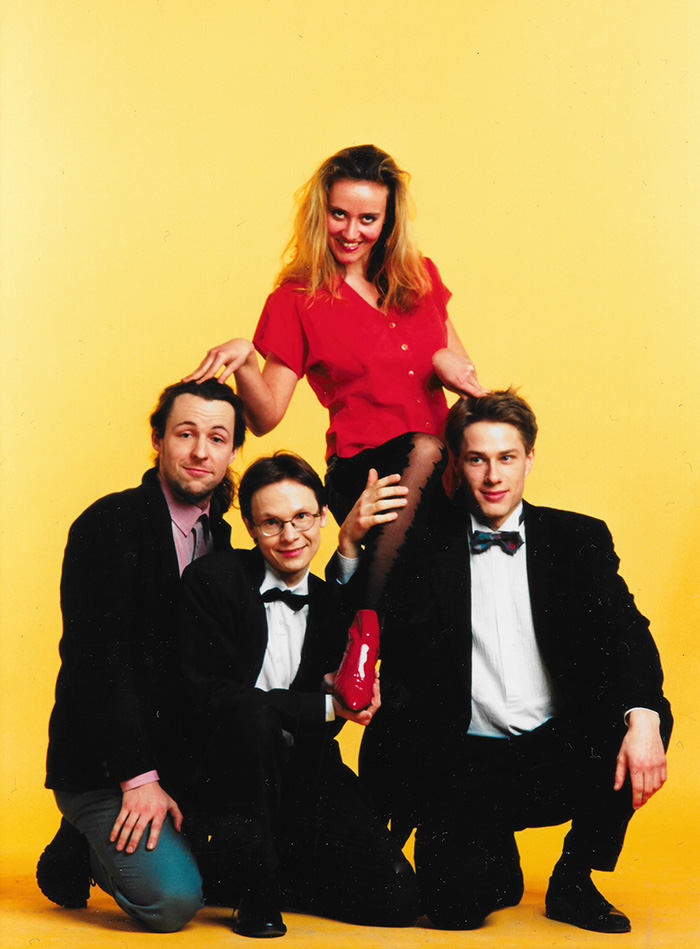
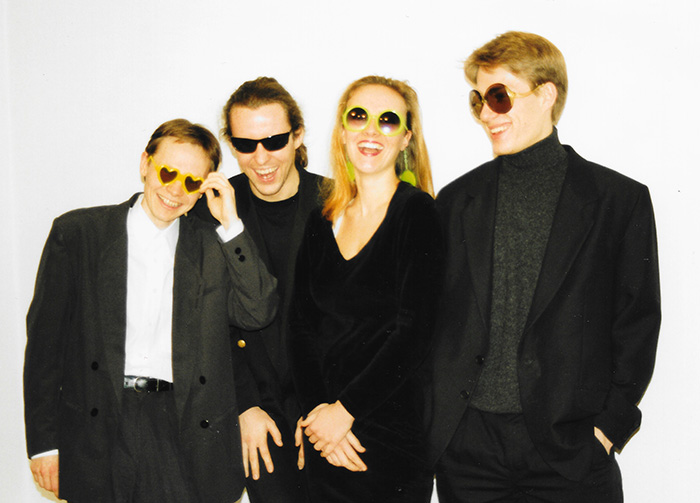
1995 – In August 1995 LaLeLu gives its first full concert for the a-cappella-competition of Jugend kulturell: <em>The Musical Summary of the 20th Century</em>. At that time we still called ourselves <em>Singapur</em> (the name was forbidden later) and the name of the show was <em>A Cappella Beyond All Taboos. </em>But you can easily see we had lots of fun!
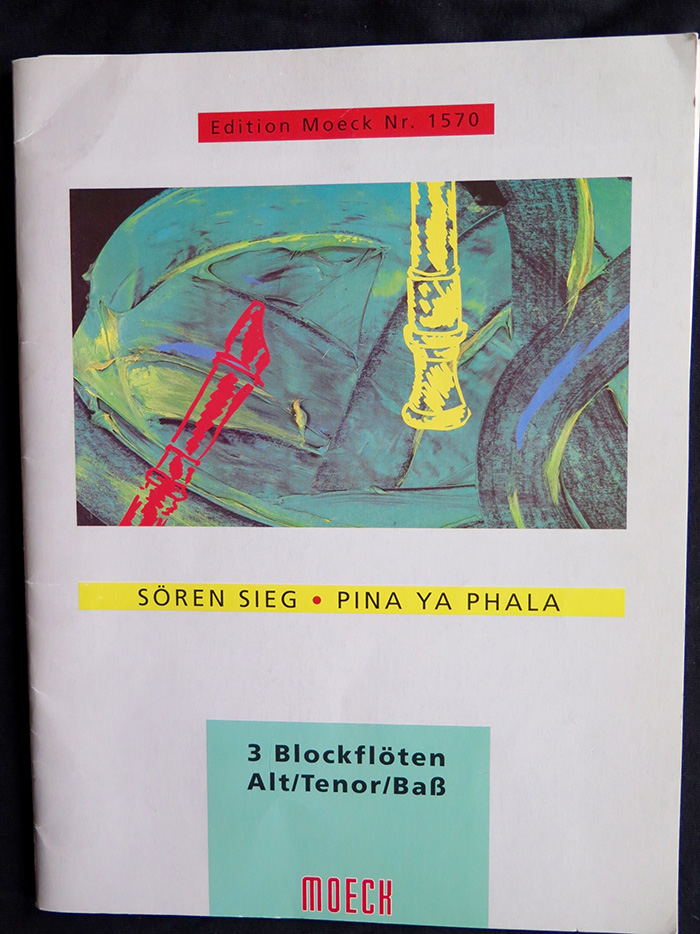

1996 – Pina ya phala, my second African Suite for recorder trio, is published by Moeck. Until today, it is my best-known piece and is recorded on four different albums. In the preface I write: "Pina ya phala is not a purely African piece; I combine typical black African musical characteristics - short melodic phrases, frequent repetitions, pure major triads, lively rhythm - with typical European composition techniques like variation, contrast, development and polyphony. My intention in pina ya phala was to unite the joyful relaxedness of African music with the dramatic tension of European music." This basic idea never changed. Pina ya phala in Setswana means Flute Music - or Antelope Dance.
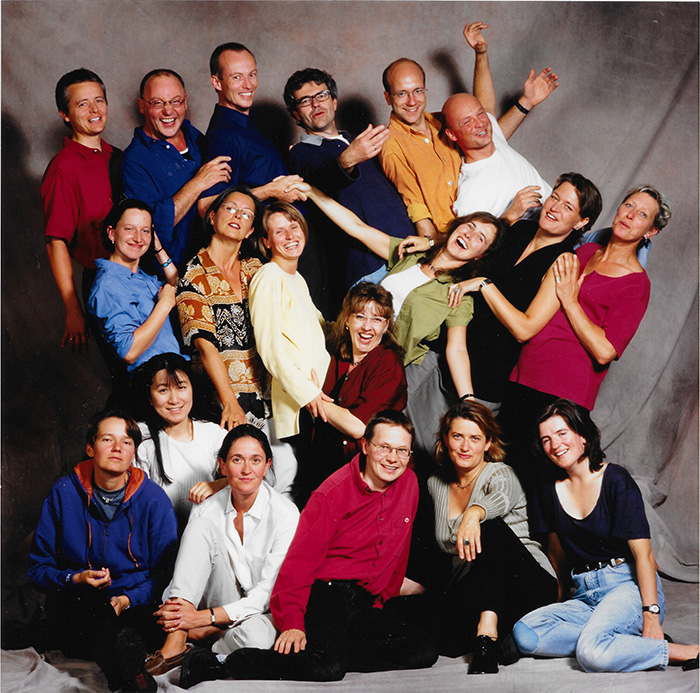
1997 – During my studies in music I founded and conducted four choirs that still exist: d'accord (today Die Chorallen), the Vocal Heroes, The Voices Bergedorf and the Swingtonics (here on the photo). For my choirs I write literally hundreds of vocal arrangements of my favorite pieces of Pop and Jazz; my absolute favorite is Moon River, which we later sing frequently with LaLeLu. While singing and conducting it, I always had Audrey Hepburn in mind since she was, for me, the most beautiful woman of the 20th century.
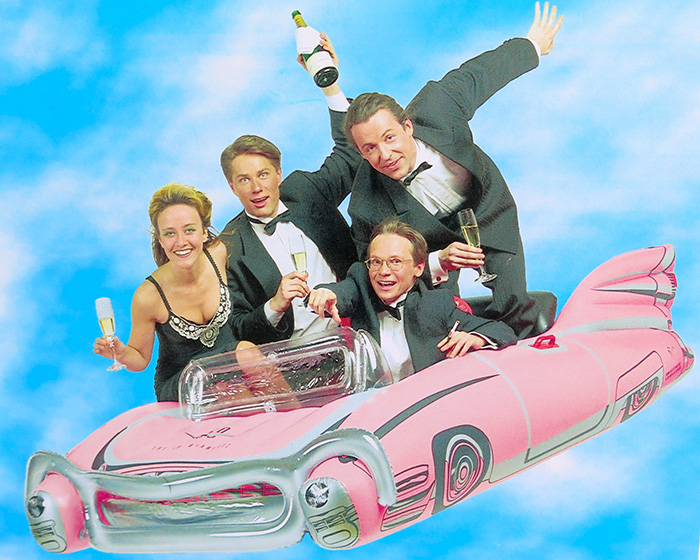
1998 – For our third show New York, Rio, Büdingen, we buy this huge pink rubber boat. We find the location, Büdingen (Nordhessen), in a funny poem by the German poet Robert Gernhardt and The Long Way to Büdingen is my first romantic choir satire for LaLeLu. Later our bass player, Tobi, gets to know a beautiful woman from Büdingen and later, marries her. Now in 2017, the German Socialist Party is advertising for their anti-charismatic candidate, Martin Schulz, with the slogan “New York, Rio, Würselen.”
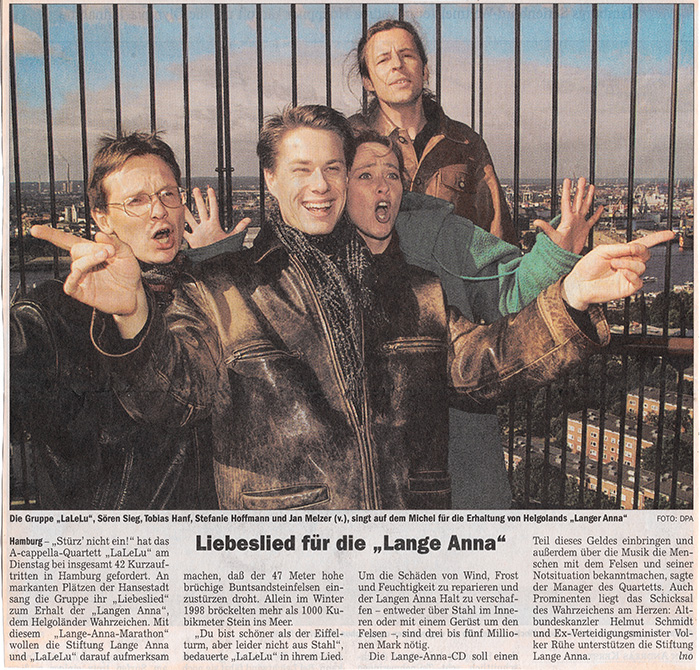
1999 – Lange-Anna-Marathon! To save the famous rock Lange Anna at the coast of Helgoland, LaLeLu sings its Lange-Anna-Hymn 42,195 times in one day from 42 different locations around Hamburg including our main church, a doss house, a kindergarden, the Erotic Art Museum, a Cinemaxx and a local Zoo. Three technical teams transport and install the sound equipment and six TV-Teams follow us. While at the Holthusenbad, a public bath, my voice breaks down at 7 pm and somehow returns at 9 pm at the Harburg harbour. During the last performance, we sing only until bar 31, in order to reach exactly 42,195 concerts. For the Maxi-CD, I had to compose three songs about one rock, a very special task. At least we succeeded - the Lange Anna is still standing!
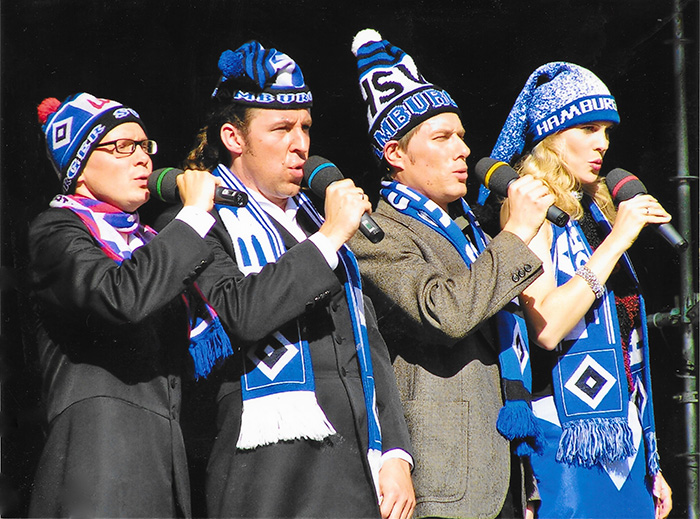
2000 – Unfortunately very good - The Show of Superlatives: Our fourth show is a kind of breakthrough for us. In HSV, du grüßt von ferne we sing about the suboptimal performance of our traditional Hamburg soccer team in a romantic choir style. I have never written a song that stays so much up-to-date as this one and only the names of the coaches and players have to be replaced from time to time.
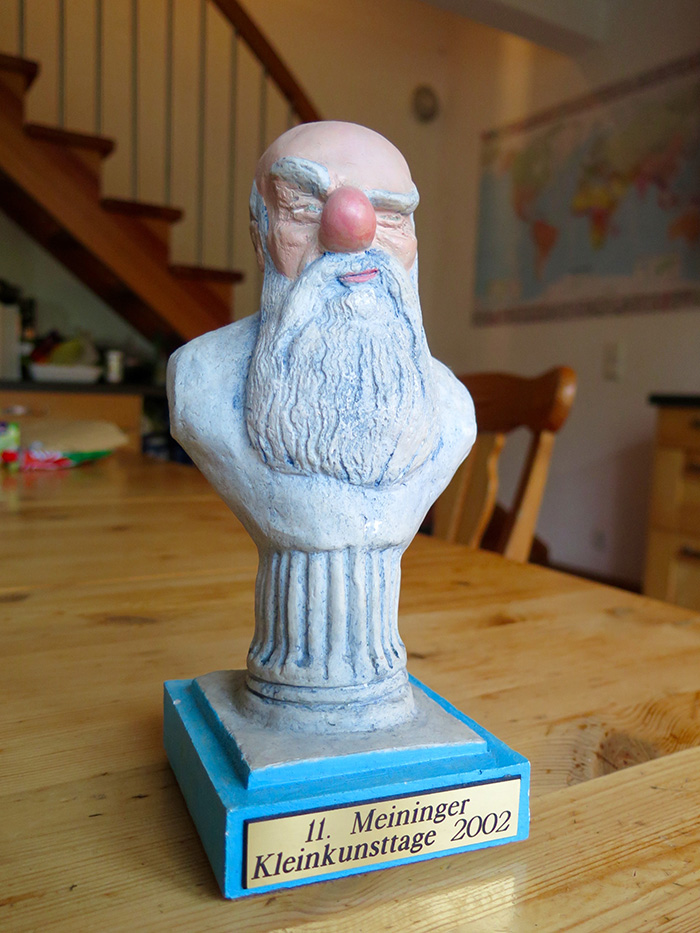
2002 – After the Vocal Arrangement Prize of the City of Hamburg, the Lüdenscheider Lüsterklemme and the St.Ingberter Pfanne we next win the Thüringische Kleinkunstpreis in 2002! The Comedy Oscar shows the theatre majesty of Thüringen Georg II: He was head of the theatre, stage director, stage designer, culture politician - and Duke of Sachsen-Meiningen. Till today he stands on my piano.
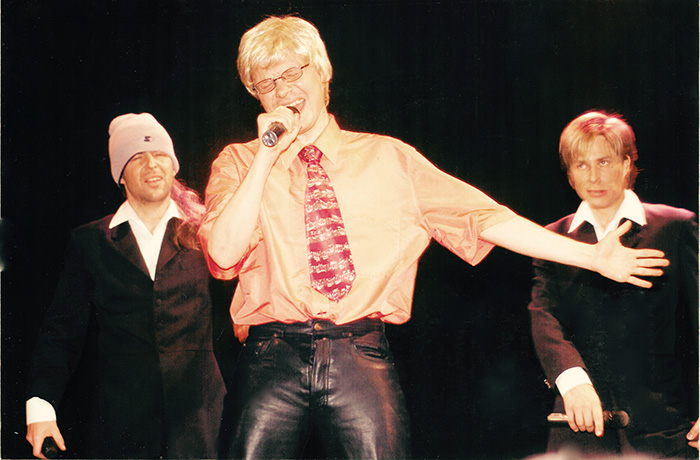
2003 – Great Art. For Small Money is our fifth show. My favourite part is when the pop singer Florian Clüver sings a big playback ballad in which he protests passionately against artists that are using playbacks on stage. Many spectators are so used to playback performances that they don't even notice that I don't sing live and that there is only a tape playing.
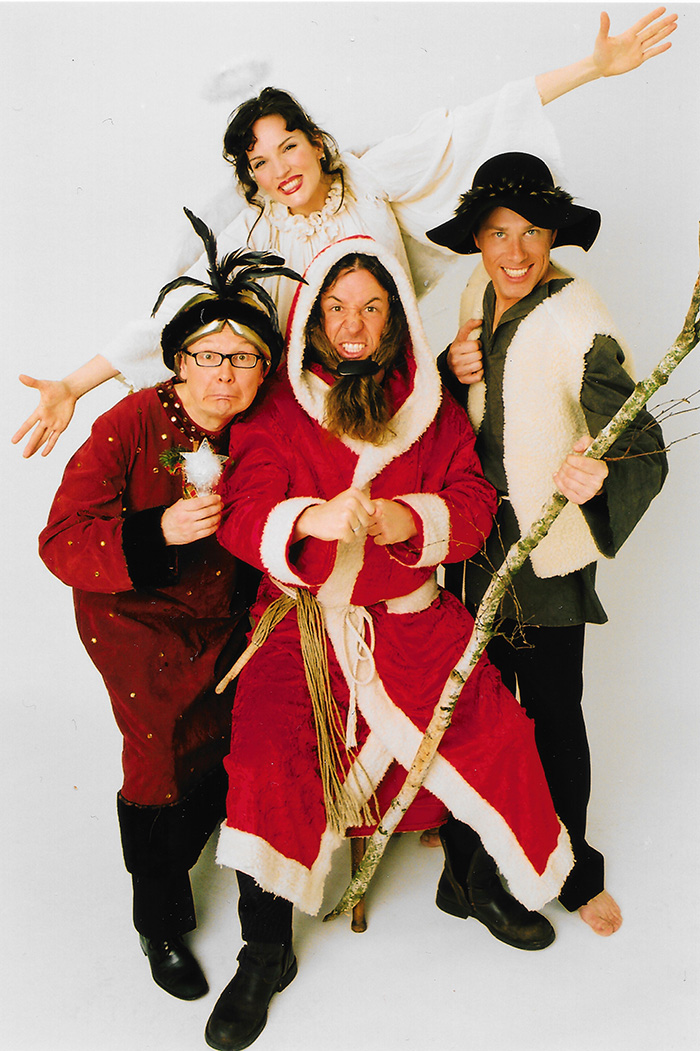
2004 – Christmas with LaLeLu is our sixth show, it seems to be everlasting - and it's great fun! As son of both a Christmas fan and hater, I seem to be made for this subject. Later I also write songs for Bidla Buh's Christmas show and from 2012 on, I write for the satirical Christmas anthologies of Dietmar Bittrich (Weihnachten mit der buckligen Verwandtschaft).
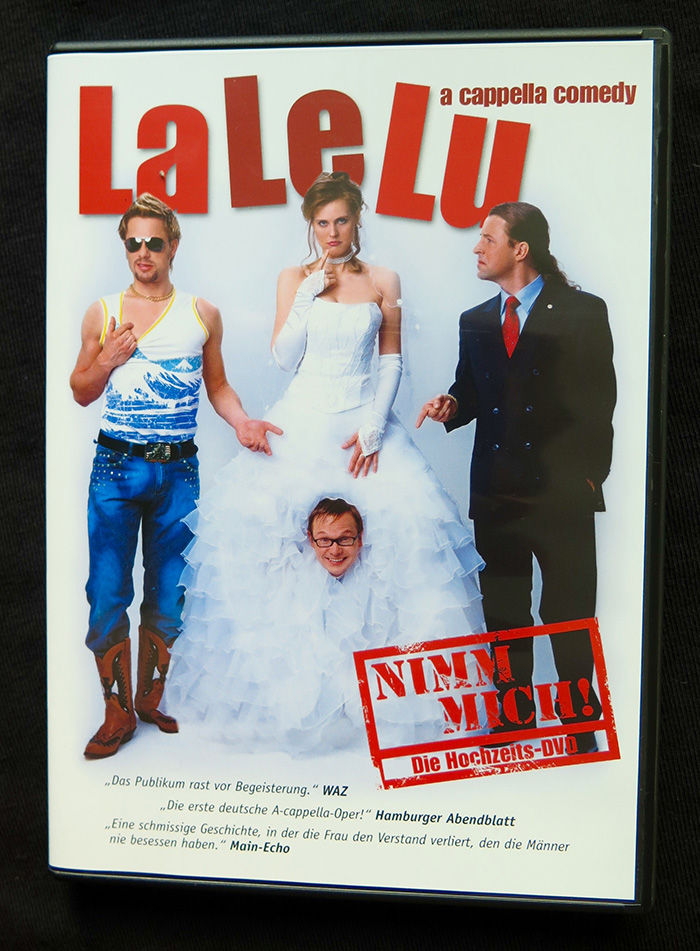
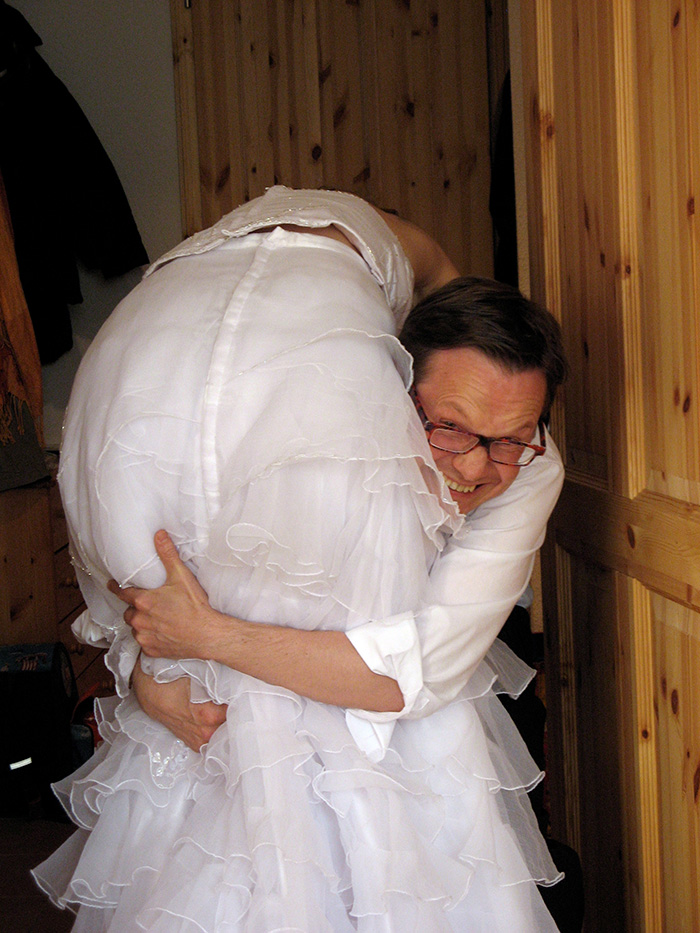
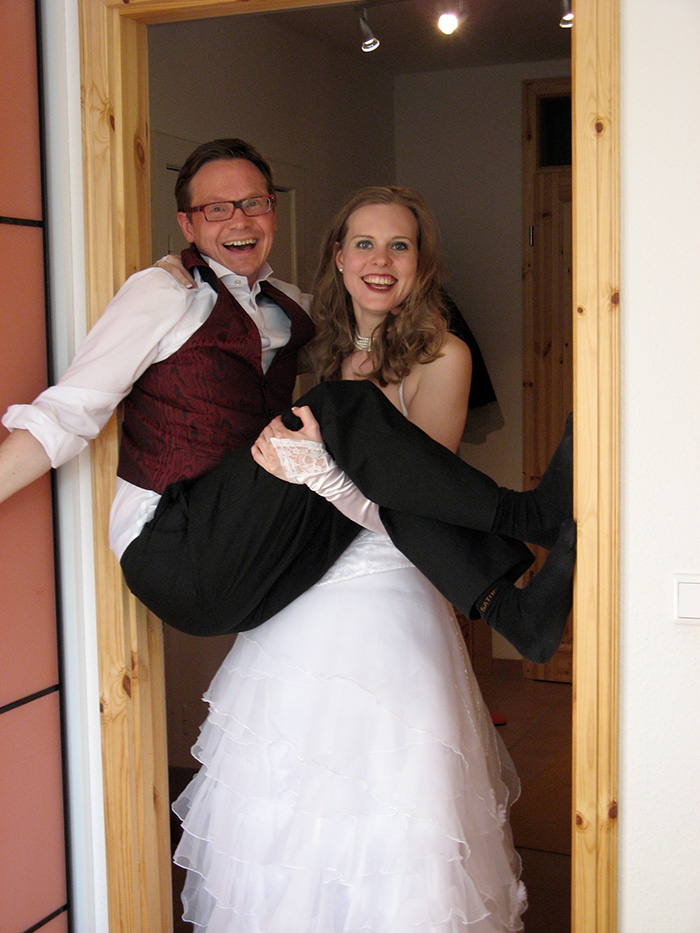
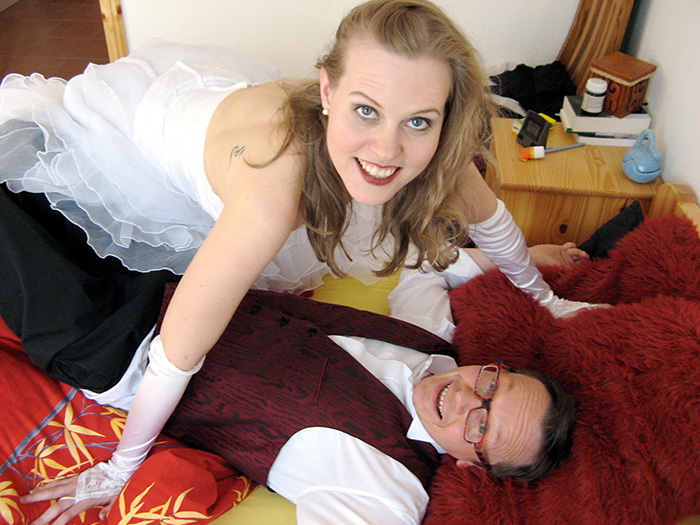
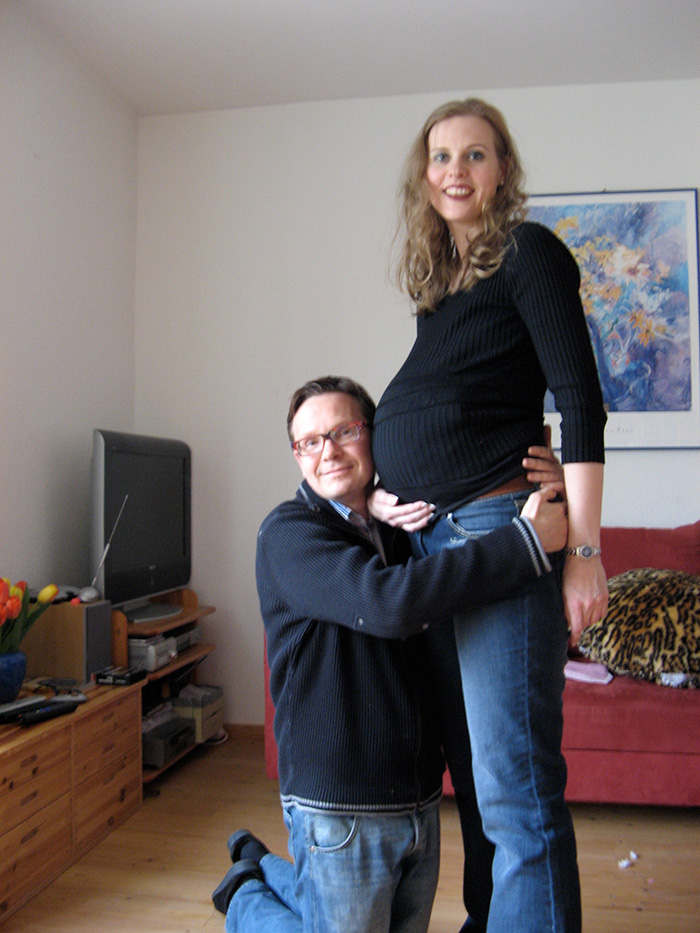
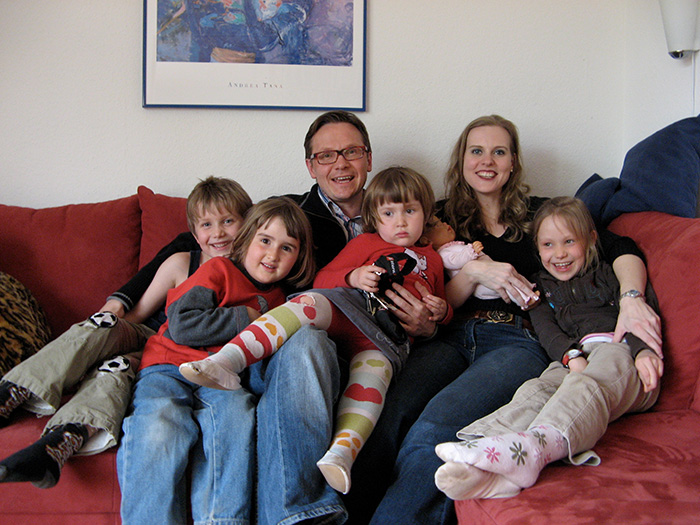
2006 – Take Me! The Marriage Opera is the story of a small-statured waiter (played by me) who gets the girl, a tall blonde, in the end. It will be our only DVD - with 40 minutes of bonus tracks! I wish to thank our genius director, Lukas Langhoff, from Berlin as we owe him much thanks for the quality and success of our single theatre play.
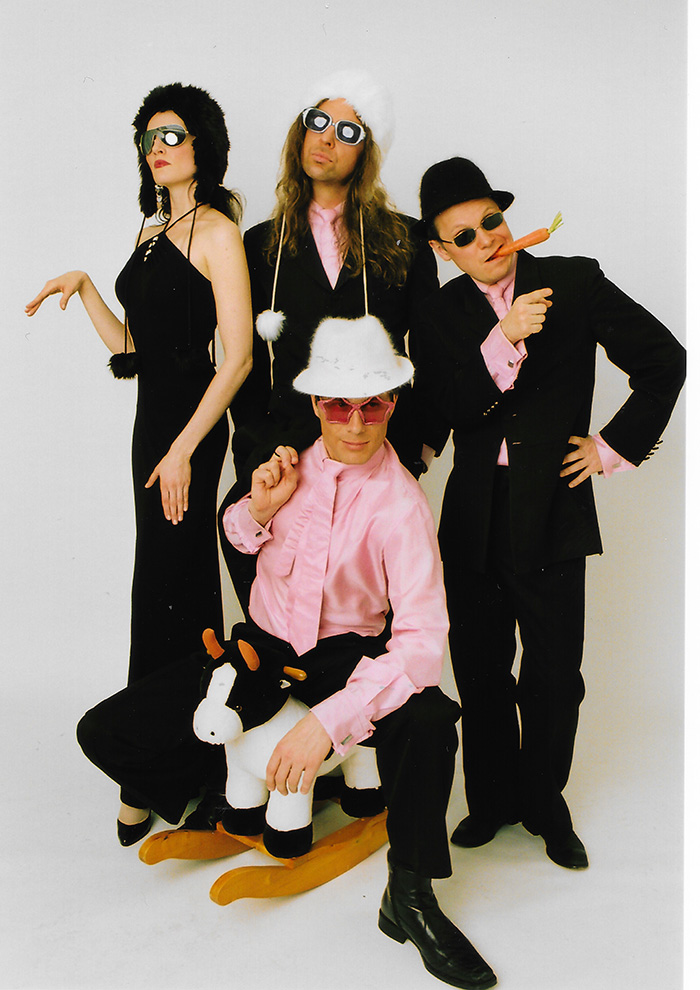
2008 – Vain without reason, our ninth show, is also available as a sticker, CD and card game. It's the first time we turn to political satire and we are invited to many cabaret shows on German TV. The highlight is our “Salsa-Hymn” dedicated to the charismatic conservative politician Ronald Pofalla. Many thanks to Jan Behrend from Elbtonal for the great remix!
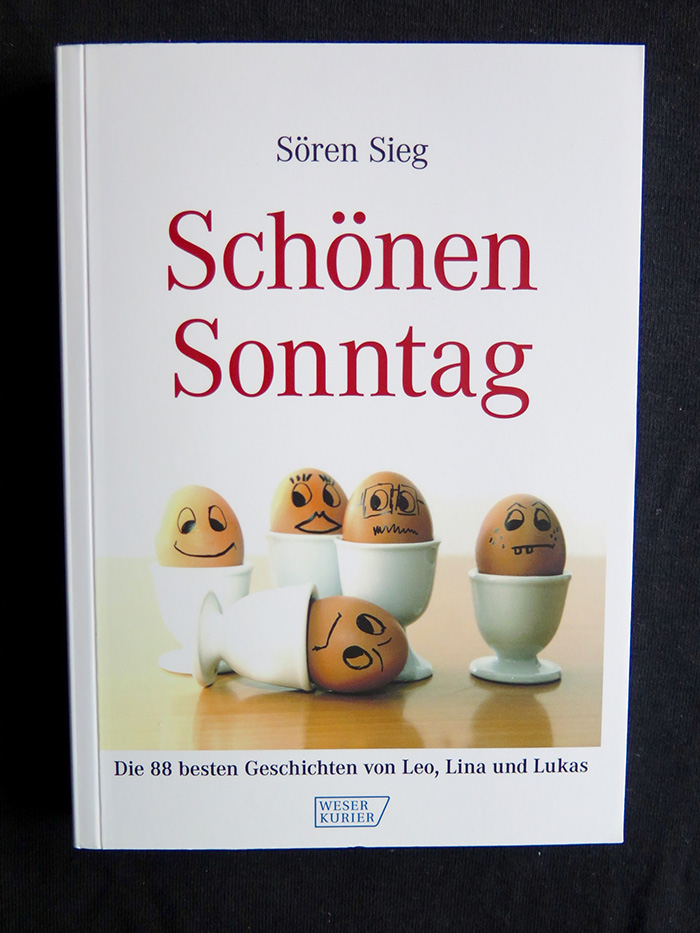
2010 – After four unpublished books (three novels and a collection of short stories) my first book is published: Schönen Sonntag! Die 88 besten Geschichten von Leo, Lina und Lukas which is a collection of the front page columns I wrote for the Bremer Newspaper Weser-Kurier from 2009 on. Our "Parmesan 21"-movement against the 17 grams of Pamesello cheese in every package of Miracoli is nearly successful. Nearly.
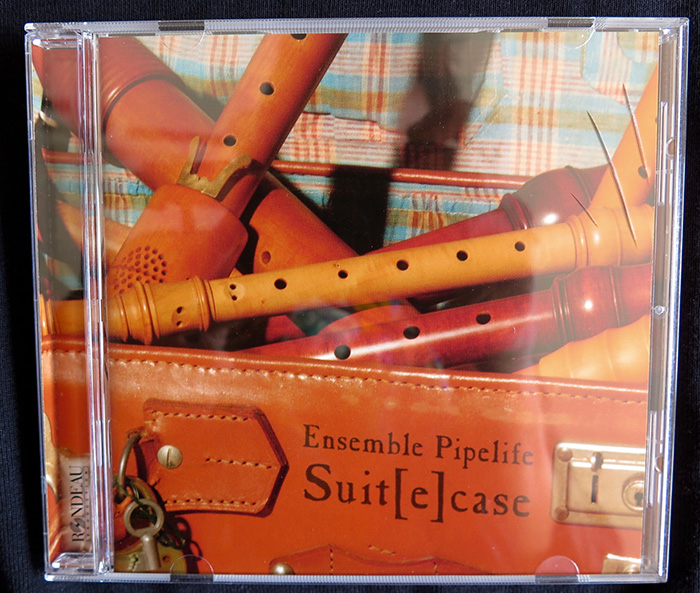
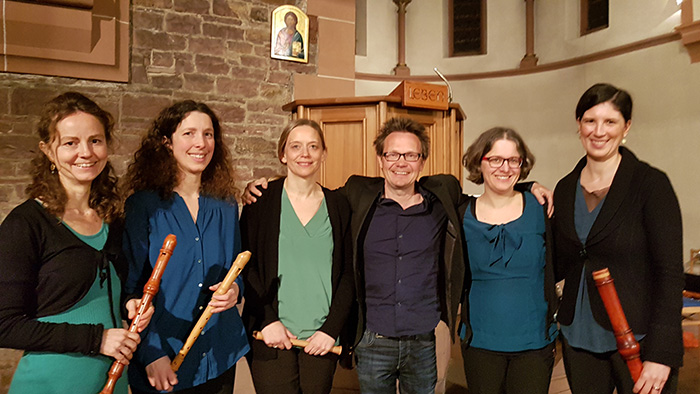
2011 – Motivated by Alfred Schunder from Musiklädle Schunder in Karlsruhe I start to publish my music sheet by myself. At first I publish my African Suite No. 4 Vitambo vya moyo, that was so brillantly recorded by the Ensemble Pipelife on their album Suitecase. On this photo you see us happily united after the presentation of the next album Tides and Tunes in March 2017, that contains my 16 Variations on the Swallowtail Jig.
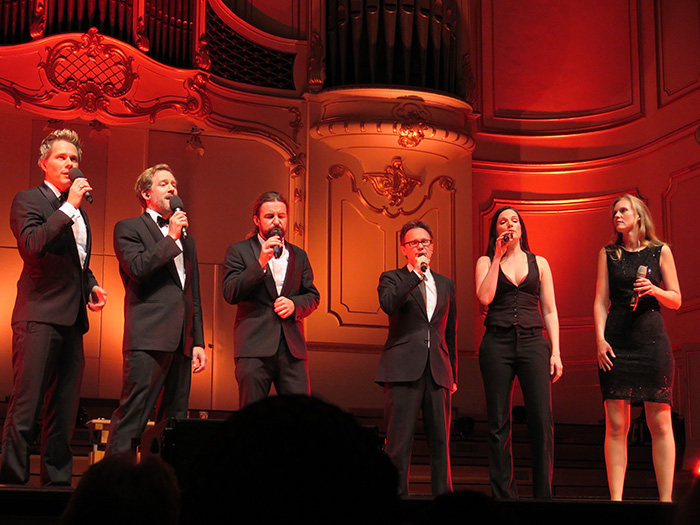
2012 – After 18 years I leave LaLeLu to focus on writing and composing. On the 16th of June I give my last concert with them in Alma Hoppes Lustspielhaus, our "living room", where we played all our premieres since the year 2000. My biggest thanks to Jan, Tobi, Stefanie, Sonja and Sanna, but also to Urs, Björn, Robert, Henning, Carsten, Ingvar, Lena, Kerstin, Ali, Lukas and Mine for the incredibly great time. Two years later we sing When we dance together in the Laeiszhalle Hamburg on the occasion of 20 years of LaLeLu.
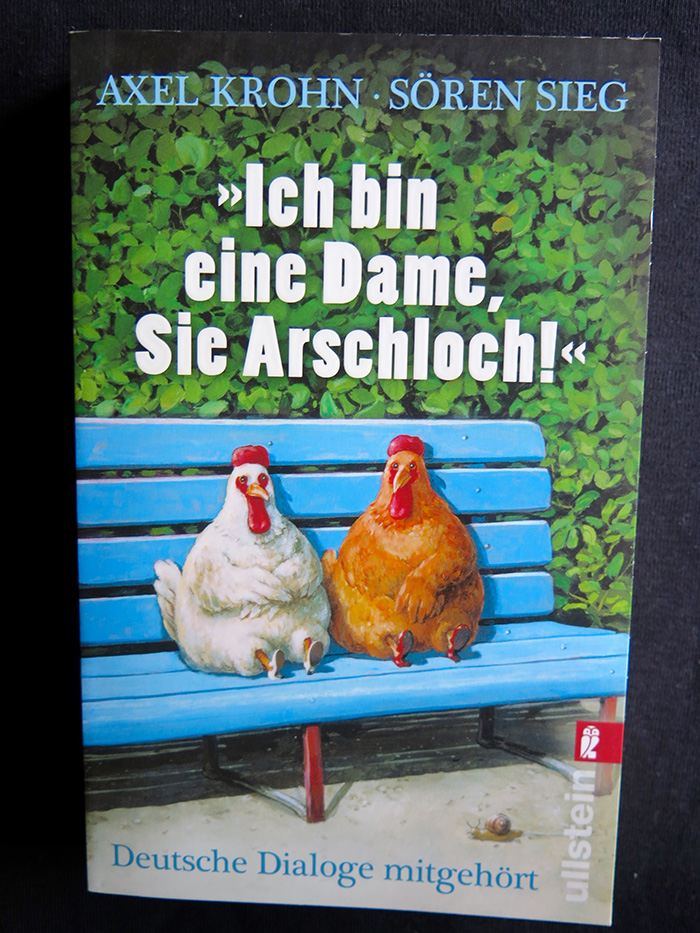
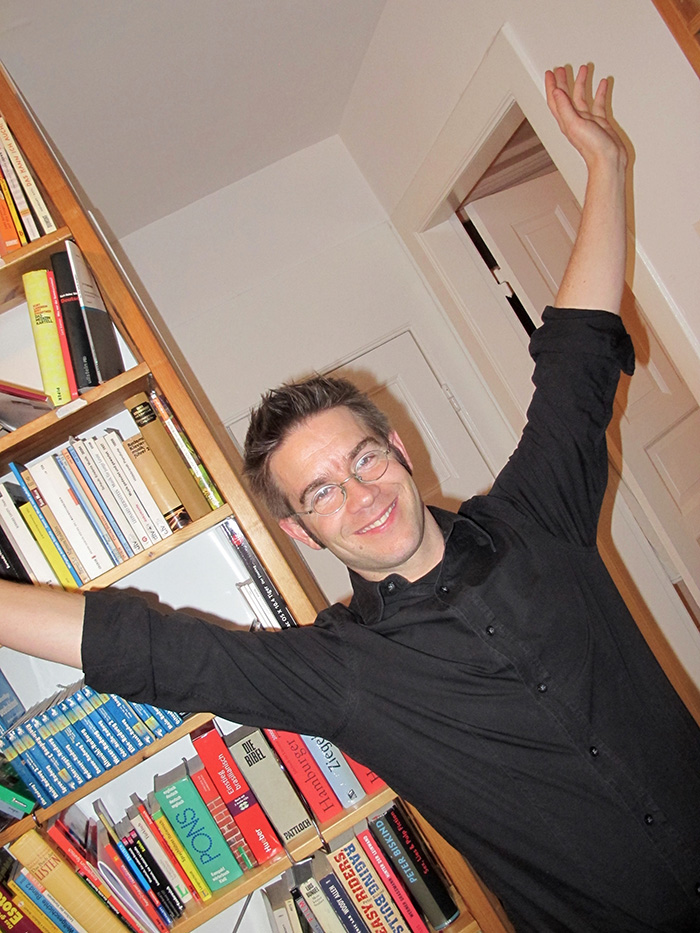
2013 – I am a lady, you asshole! German Dialogues is published by Ullstein in February 2013 and stays on the bestseller list many weeks. The successor I did not understand you visually also becomes a bestseller and makes it to the shortlist of the funniest book titles of 2015. My biggest thanks to Axel Krohn, with whom I wrote the books together, an admirable artist and great cooperation partner.
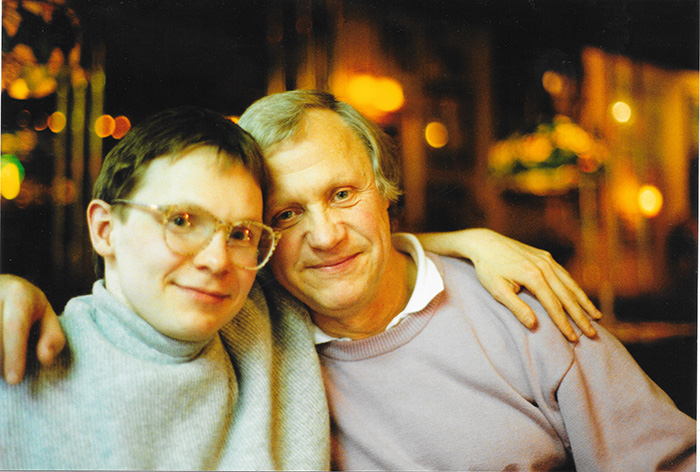
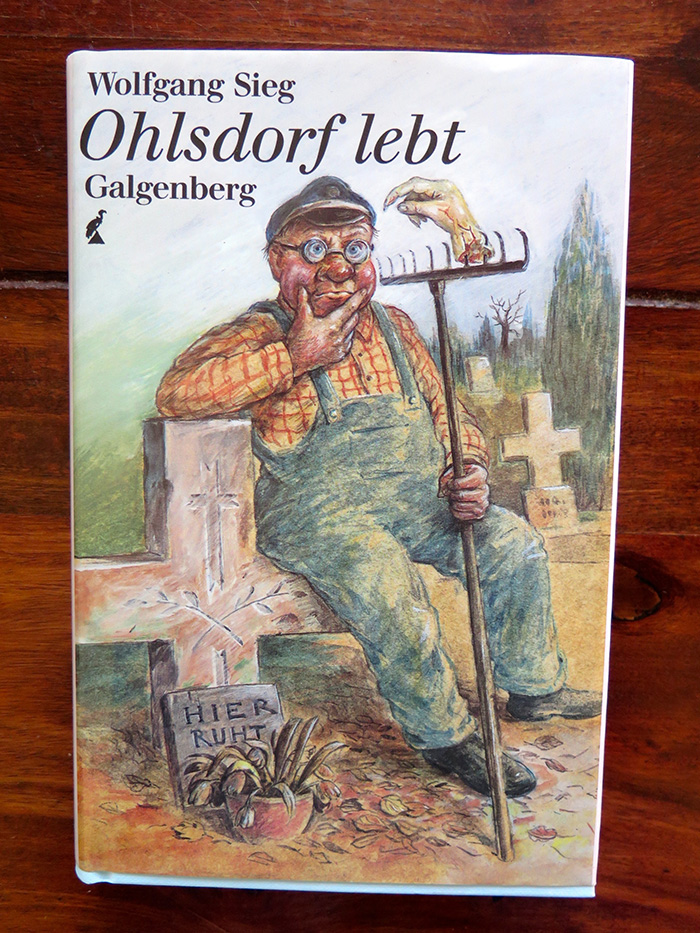
2015 – On September 11 my father Wolfgang Sieg passes away. For decades he was a real productivity miracle: he wrote 21 books, more than 40 audio plays, the script to the famous German movie Karniggels and literally thousands of short stories and columns - besides a 40-hour full-time job as a German teacher. With his inexhaustible energy, fearless humour and artistic intransigence, he has always been a role model for me. In the days after his death, I write the second movement of Inxaxheba, The Great Sorrow. The African Suite No. 14 The Storyteller is dedicated to him.
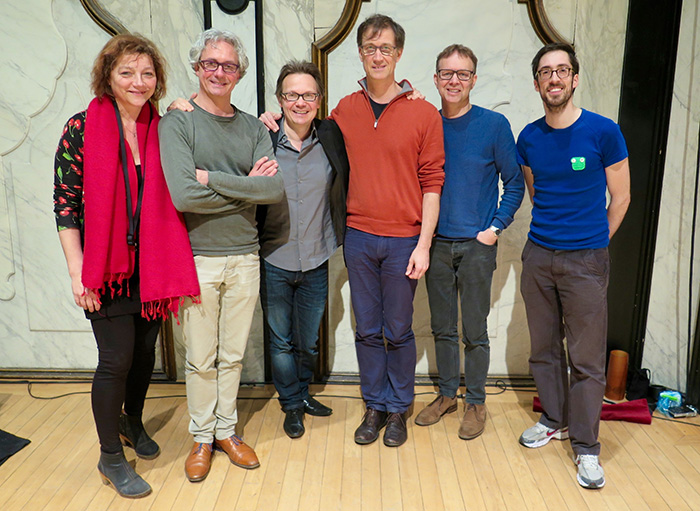
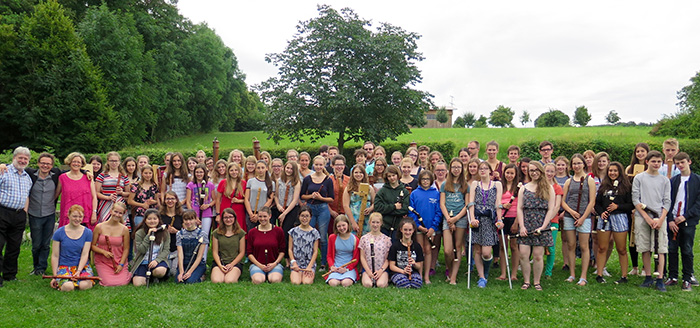
2016 – The year of travels and premieres! I travel through Ethiopia, Uganda, South Africa, Ghana, Japan, Hong Kong and China and attend premieres in Vienna, Wien, Basel, Berlin, Weil der Stadt, Trossingen, Antwerp, Bremerhaven and Tokyo. Here you see me with the Flanders Recorder Quartet and Saskia Coolen in Antwerp, at the meeting of the Landesjugendblockflötenorchester Baden-Württemberg with the National Youth Recorder Orchestra of Great Britain in Weil der Stadt and with Takashi Yasui in Tokyo. Yasuis Consort Company plays the very first concert dedicated to only my works at the Ohmi-Gakudo-Hall in the Opera City of Shinjuku on October 12.
